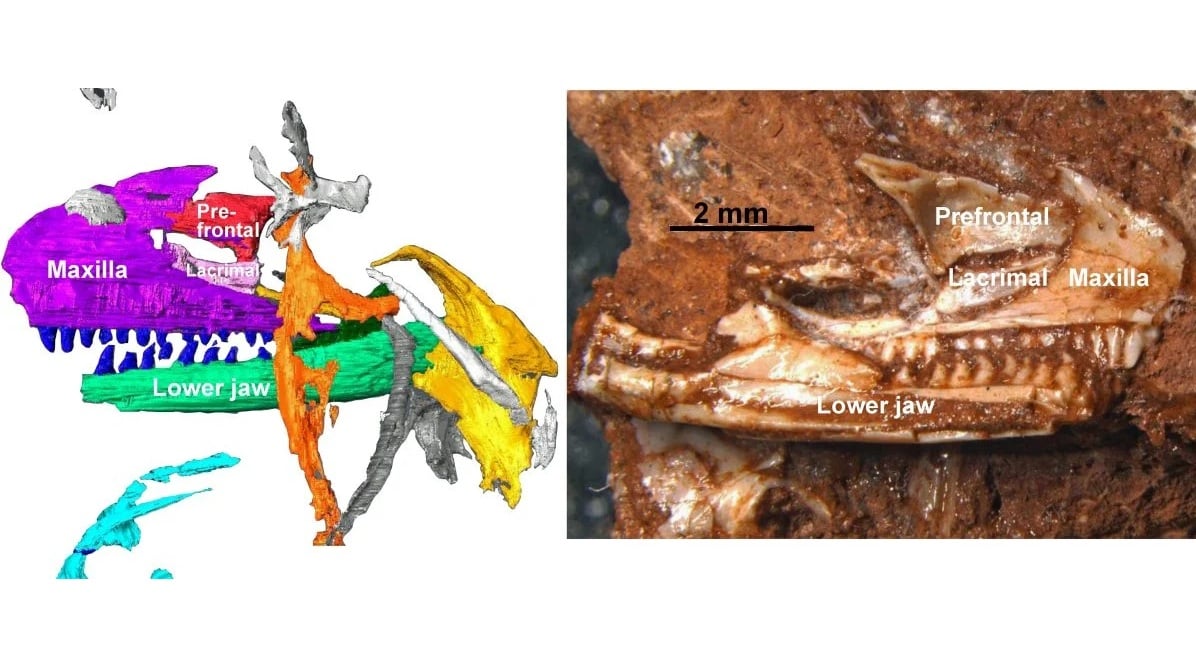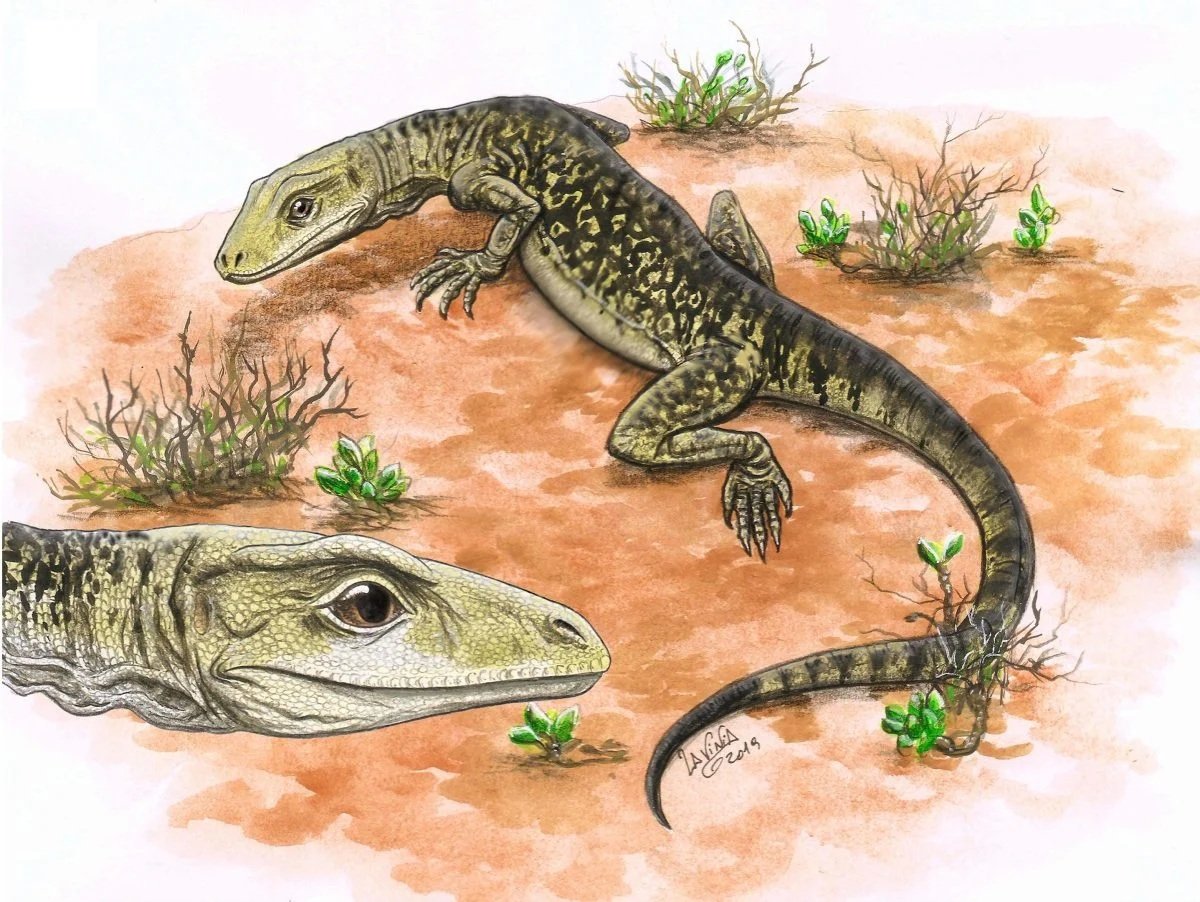(NLDO) - Among the Triassic rocks near Bristol City - England, the fossil of a previously unknown reptile species has just been found.
A team from the University of Bristol (UK) named the new reptile species Cryptovaranoides microlanius and described it as a specimen that "shakes up evolutionary history".
This tiny paleontological treasure has moved the origin of the entire lizard-snake group — known as Squamata — back 35 million years from previously thought, according to SciTech Daily.

Ancient reptile fossils unearthed in England - Photo: BRISTOL UNIVERSITY
Writing in the scientific journal Royal Society Open Science, the authors said this is the oldest representative of modern lizards found on Earth.
Its name Cryptovaranoides microlanius means "hidden lizard, little butcher".
Despite its modest body, this reptile possesses extremely sharp teeth that can easily cut prey in half.

Cryptovaranoides microlanius in life - Photo illustration: Lavinia Gandolfi
Previously, the classification of the Cryptovaranoides family of reptiles was controversial, with some suggesting that they were actually sauropods, more closely related to crocodiles and dinosaurs.
However, this specimen - with its good state of preservation - has helped scientists to more clearly determine that this lineage is indeed a lizard, through CT scanning and reconstruction of the characteristics of the creature when alive.
In addition to the original specimen, the Triassic rocks that encased the animal also yielded interesting data.
These complex manipulations allowed the team to identify many anatomical features of the skull and skeleton that allowed them to place it in the Squamata clan, as well as rule out potential links between Cryptovaranoides and dinosaurs and crocodiles.
Source: https://nld.com.vn/loai-bo-sat-205-trieu-tuoi-lam-rung-chuyen-lich-su-tien-hoa-196241217094649005.htm



























![[Photo] National Assembly Chairman attends the seminar "Building and operating an international financial center and recommendations for Vietnam"](https://vphoto.vietnam.vn/thumb/1200x675/vietnam/resource/IMAGE/2025/7/28/76393436936e457db31ec84433289f72)









































































Comment (0)